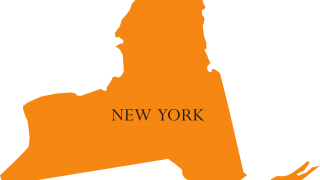Minors Gaining Vaccination Authority

The United States has been experiencing an increasing number of infectious disease outbreaks, such as measles and human papillomavirus (HPV) in 2019.
While most healthcare providers would agree that vaccines are one of modern civilization's greatest achievements, American parents’ resistance to vaccination is leaving more children vulnerable to vaccine-preventable illnesses.
A recent editorial published in The New England Journal of Medicine on July 11, 2019, said ‘some of these children have begun to seek opportunities to revisit vaccine-refusal decisions made on their behalf by their parents and are now pursuing vaccination options against preventable cancers and measles.
In a March 2019 congressional hearing on preventable disease outbreaks, Ohio high school senior Ethan Lindenberger shared his experience of trying to get vaccinated over his mother’s objections.
Mr. Lindenberger testified that his mother is an antivaccine advocate who believes that vaccines can cause autism and brain damage, “despite the fact such opinions have been debunked numerous times by the scientific community.”
Once he turned 18, Lindenberger went to a public health clinic for vaccinations against hepatitis A and B, influenza, and HPV.
Such cases raise the question of whether adolescent minors should be able to consent to vaccinations without parental permission.
For minors to be able to choose to be vaccinated over parental objections, most states would need to make substantive changes to laws governing medical consent. Since children are generally considered nonautonomous under U.S. law, treatment of a child in a medical setting requires parental permission, typically until a child reaches 18 years of age.
Parents are generally given broad discretion in making decisions on behalf of their children, in part because they know their child best, are positioned to weigh competing family interests and are permitted to raise their child as they choose.
Such discretion doesn’t mean that adolescents have no role in decisions that affect them.
However, out of respect for adolescents’ developing autonomy, clinicians routinely explore their understanding of health-related issues, solicit their agreement on care plans, navigate discordance between parental and adolescent preferences, and protect adolescents’ confidentiality interests.
Both ethical principles and state laws also support independent decision making by adolescents in cases in which failing to grant adolescents autonomy could foreseeably result in a substantial risk to the minor or to public health.
Anti-vaxx news
- Anti-Vaxx’ers Suffer From Fear, Trust, And Are Willing To Gamble
- Israeli Court Overrules Anti-Vaxx Parents
- WHO Seeks Greater Transparency of Pharma Products
- Social Media Misinformation for Under-Vaccinations
- AMA Says ‘Combat Fake Vaccine News’
Granting minors decision-making authority for vaccination also triggers reconsideration of the materials and associated communication needed to ensure that they can make informed decisions.
Federal law requires that clinicians provide adult patients and children’s parents or legal representatives with a Vaccine Information Sheet before vaccination.
Since such materials are written at a 10th-grade reading level, they would most likely require revision if intended recipients were to include adolescents as young as 12 or 14 years of age.
Parental involvement in vaccination decisions remains important. Yet adolescents need not be harmed by parental decisions that are based on misinformation or disinformation.
Allowing adolescents to consent to vaccination despite persistent parental resistance facilitates access to a medically recommended and evidence-based treatment.
It promotes the minor’s health, poses a minimal personal risk, and offers substantial prosocial benefits, including reinforcement of the norm of vaccination and enhancement of community protection against the spread of dangerous and costly yet preventable diseases.
Given such benefits, we believe that states should enact laws that expand both access to vaccines and the rights of minors who are at least 12 to 14 years of age to consent to vaccination.
Authors included Ross D. Silverman, J.D., M.P.H., Douglas J. Opel, M.D., M.P.H., and Saad B. Omer, M.B., B.S., M.P.H., Ph.D.
Our Trust Standards: Medical Advisory Committee
- Vaccination over Parental Objection — Should Adolescents Be Allowed to Consent to Receiving Vaccines?
- Legal approaches to promoting parental compliance with childhood immunization recommendations
- Current landscape of nonmedical vaccination exemptions in the United States: impact of policy changes
- Vaccination Mandates: The Public Health Imperative and Individual Rights

























